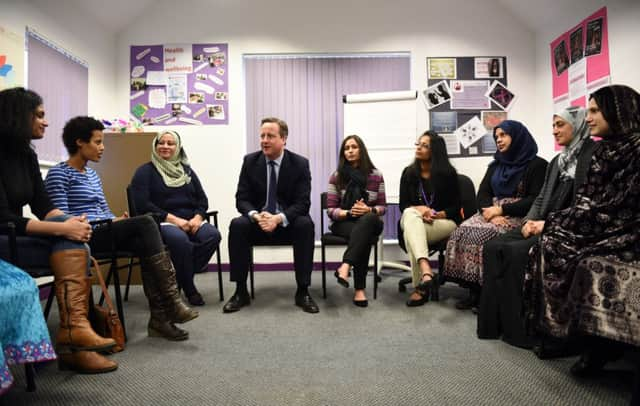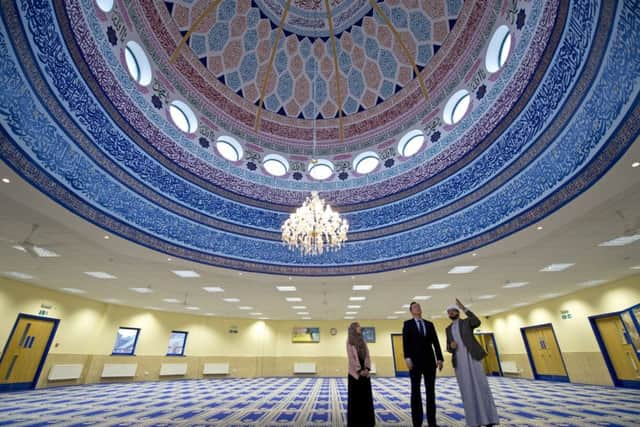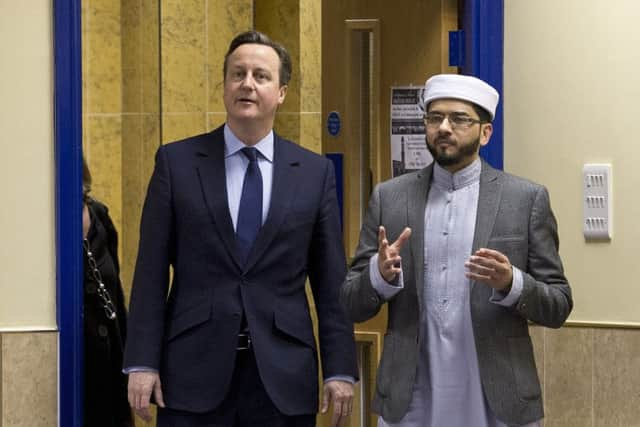Learning English helped us gain confidence, Muslim women in Leeds tell PM


Mr Cameron followed his announcement about encouraging language skills as a means of building community integration and countering extremism by meeting members of a women’s English class at the Shantona Women’s Centre in the Harehills area of the city.
Advertisement
Hide AdAdvertisement
Hide AdOne woman, originally from Ethiopia, explained how learning English had helped her communicate with her six-year-old son’s school and explain to her child what his teachers wanted from him.


She said: “It does help me to communicate with people. It’s improving my confidence and I can understand the country’s cultures.
“Now, if there are any issues with my school, I can go straightaway to his teacher or the head teacher and I can explain to my child what’s going on.”
Centre director Nahid Rasool told Mr Cameron how she had found it was also important to focus on technology, including using mobile phones and the internet, as she tried to encourage older women to engage with language development.
Advertisement
Hide AdAdvertisement
Hide AdThe women also explained to the Prime Minister the importance of centres like the Shantona in making language learning part of a broader social experience.


Mr Cameron moved on to the Makkah Mosque in the Hyde Park area of Leeds, where he talked to imam Qari Asim about the prevention of extremism and other matters.
Following a meeting with members of the local community, the Prime Minister said: “The point made downstairs very powerfully is that if you’re young and interested but you can’t understand the language, you listen to others and that’s where it can go wrong.”
Mr Asim said his organisation Imams Online works to provide a message that fills a void on the internet often used by extremists to target young people.
Advertisement
Hide AdAdvertisement
Hide AdHe told the Prime Minister: “We need to fill the vacuum with much more positive and also orthodox, traditional teachings than the twisted ideologies.”


Mr Cameron agreed with the imam that it was important to focus on the internet.
Mr Asim said Leeds was hosting a digital summit next week to discuss this focus with internet firms.
He said: “It’s trying to say to imams, you might have 500 in your congregation but you can literally reach out to 500,000.”
Advertisement
Hide AdAdvertisement
Hide AdMr Asim said the linking of English language skills with extremism risked alienating and isolating sections of the Muslim community and played into the hands of those wanting to create division within society.


The imam said that, although the policy was “sound”, the Government needs to be careful not to link all policies concerning Muslims to counter-terrorism.
Mr Asim said: “The linking of the two things could be alienating and counter-productive.
“British Muslims totally agree with fighting and countering extremism, and British Muslims absolutely agree that people who live in this country need to learn to speak English to be able to contribute to society and be part of society.
Advertisement
Hide AdAdvertisement
Hide Ad“But creating a narrative that if you don’t speak the language, you are more likely to be a terrorist or be susceptible to terrorism, that’s where it can potentially be counter-productive and also could result in a community feeling alienated and isolated.”
He added: “We need to ensure that the perception isn’t created that we have a problem with the whole community. Because the same community could actually act as a conduit for the Government to actually tackle some of those issues, whether extremism or lack of integration.”
Mr Asim said he believes the fact that Mr Cameron visited a mosque showed that the Government was interested in engaging the Muslim community at a grassroots level.
He said he had a “very honest and frank” discussion with the Prime Minister and told him the Government needed to do more to empower Muslim women and community leaders.
He said: “When women are empowered and parents are empowered, they will be able to tackle better those who want to radicalise people.”